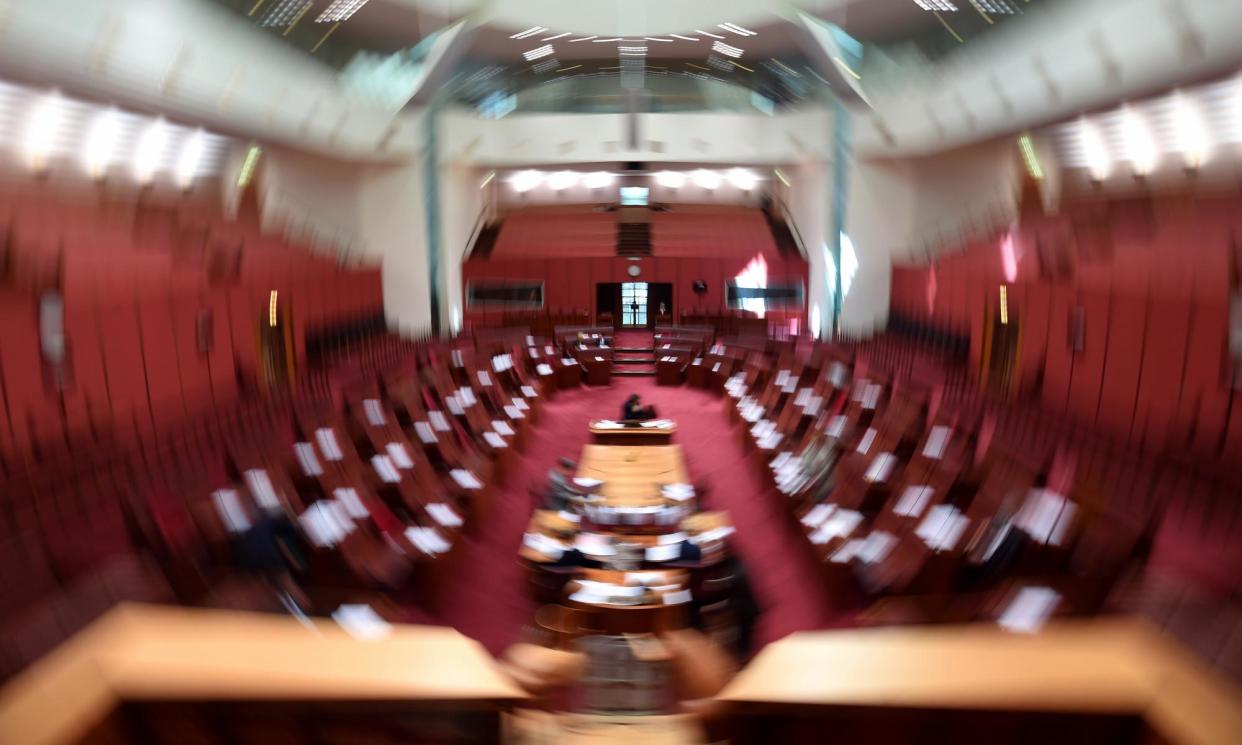A double dissolution could create a Hunger Games contest – and Albanese knows it

The prime minister isn’t threatening a double-dissolution election. Having said that, he won’t be unhappy with headlines suggesting he is, because he’s also not ruling it out.
Anthony Albanese won’t mind dangling this possibility because he knows it could pose an existential threat to some in the Senate. And he knows they know it, too.
So can he do it? And would he?
For starters, there are hurdles to clear.
On the current timetable, there’s a small window for calling an election that involves dissolving both houses of parliament instead of just the regular half-Senate version. Constitutionally, a double dissolution must be held no later than six months before the House of Representatives expires, which is exactly three years after the first day parliament sat after the previous election.
Stay with me here.
The current house expires on 25 July next year, which means any double-dissolution election must be called by 25 January. That, in turn, means either calling an election for late this year – and the state of the economy doesn’t favour that right now – or in January, for March. Albanese won’t want a campaign that runs much beyond the obligatory minimum 33 days because those rarely favour incumbents. Malcolm Turnbull had one that ran 54 days in 2016. It didn’t go well.
Then there’s the question of a trigger. To dissolve the whole Senate, Albanese needs at least one bill that the upper house has blocked on two occasions, at least three months apart.
Among the current pile before the Senate this week, only one bill is close to qualifying: the build to rent bill. If you were looking for an issue to justify a double dissolution in the current environment, housing would be up there.
Related: McPhillamys stoush is perfect seam for Dutton to mine for disaffected Labor votes
When the bill was put to parliament in June, the Senate sent it off to an inquiry instead of taking a final vote. At the time, Albanese said he had legal advice from the solicitor general that delaying a bill amounted to rejection. On that basis, the government believes the build to rent bill has been rejected once already. Some dispute this opinion, including the Greens.
But assuming he’s prepared to stand by the advice, having the Senate reject it this week would turn it into a trigger. The second housing bill, on the government’s help to buy policy, is only on its first pass. Rejection this week would not position it as a trigger. But you only need the one.
So, can Albanese call a double-dissolution election? On the basis of the advice, yes.
But would he?
It would reduce Albanese’s options, given a half-Senate election could otherwise be held as late as May. There’s also a risk, on the face of it, of ending up with an even messier Senate.
Doubling the number of Senate seats up for grabs in a single election halves the percentage of the vote – the quota – required to win one. Generally speaking, it’s easier for high-profile independents and minor-party candidates to get in.
However, that’s not the whole story. For the Greens, it means all of their 11 senators would face election at once. Half-Senate elections have helped boost the Greens’ numbers because they have secured enough of the vote, assisted by preference flows, to secure one of the six seats on offer in each state each time.
But even with the quota halved, it will be tough for them to secure two seats at once among the 12 available in every state in a double-dissolution. What’s more, in the five states in which the Greens currently have two senators – there’s only one in Victoria – they’d have to decide who gets top spot. Labor likely wouldn’t be unhappy about that Hunger Games contest.
One Nation may not easily reach two quotas in Queensland either, meaning Pauline Hanson could lose her second senator in Malcolm Roberts.
Similarly, some other crossbenchers might struggle to win even a half-sized quota in their own right. Potentially at risk, in theory, are the likes of former Labor senator Fatima Payman in Western Australia, Tammy Tyrrell – previously with the Jacqui Lambie Network – in Tasmania; ex-Green Lidia Thorpe, ex-Liberal David Van and the United Australia party’s Ralph Babet in Victoria.
Related: Labor’s stalled environmental agenda under pressure from left and right
Major-party candidates or other independents could replace them. But the other quirk of a double dissolution is that it requires adjustment to get back into the regular half-Senate pattern, meaning half of the winners would have their terms reduced from six years to three and be forced to run again next time.
To work out who, the major parties would use their combined numbers to insist it’s the half elected on the lowest quotas. In other words, any pesky low-vote crossbenchers would have to go back to the people and get elected again – and with the quota back at its usual size, some of them wouldn’t make it.
So there are a few reasons Albanese might be tempted to a double dissolution. Malcolm Turnbull did it in 2016 and ended up with a reduced majority in the House of Representatives and three fewer seats in the Senate. Then again, he also had that 54-day campaign – a very bad idea.
But this current non-threat isn’t really about whether Albanese will do it. It’s about the possibility, just like putting the housing bills to the parliament without further negotiation is about declaring that the Coalition and the Greens are stopping the government from governing.
Albanese doubtless hopes the combined angst of all this might just generate more cooperation in the red chamber across the hall.


